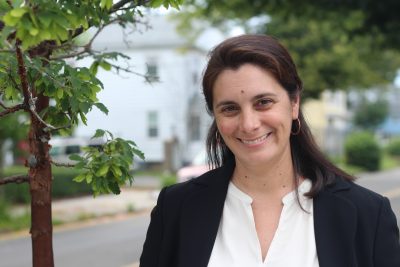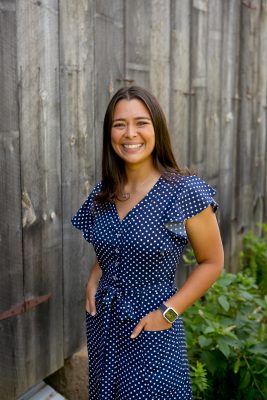Name, Profession Title and Employer (agency, organization, institution, etc., if applicable), SSW Class & Concentration
Lady Mendoza, Deputy Chief of Staff, Office of Mayor Luke A. Bronin, City of Hartford, Class of 2017, Policy Practice
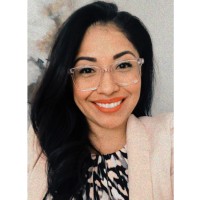
- Brief description about your career path (how you ended up where you are).
I originally wanted to become an elementary school teacher. After a few years in the field I realized I wanted to pursue a career in helping others more broadly which is why I started looking at social work programs. My first glimpse into politics was through my job at the Hartford Mayor’s office, I started off doing constituent work and was given an opportunity to assist on legislative matters during the legislative session. I found the work challenging but interesting and knew then that I wanted policy practice to be my concentration. I interned at the Humphreys institute my first year and sought out an internship at the office of policy and management my second year. Through my internship, I got an in depth look at legislative work from the state perspective and was later offered a full time job with Governor Malloy’s office in 2018. I went on to continue this work with Governor Lamont’s administration and am now back with the City of Hartford.
- Why did you choose social work as a profession?
I chose to pursue a social work education to gain a better understanding of macro social work in the context of policy making.
- What is your favorite memory from your time interning at the Humphreys Institute?
My favorite memory of my time interning at the Humphreys Institute was planning and executing the campaign school. It was a lot of work in the weeks leading up to the event but it was also rewarding to see how many folks who had an interest in political social work attended the campaign school from different schools.
I’m most proud of the legislation I worked on with my colleagues that have now become law. From changes to treatment of incarcerated persons, to offshore wind, every piece of legislation takes an incredible amount of effort to make it to the finish line but seeing a bill you’ve worked on become a public act is an accomplishment I will always remember and cherish.
- What impact has your UConn social work education had on your life?
I’ve gained amazing friendships and connections through the UConn School of Social work which have not only added to my professional life but to my personal life as well.
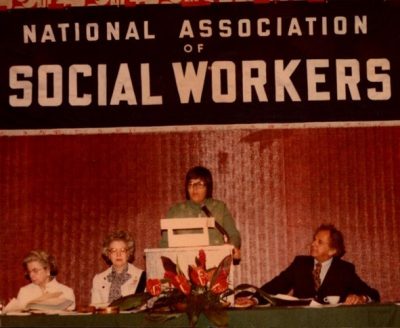 Nancy A. Humphreys will always be remembered as a pioneering social work educator and leader. She initiated a national effort to modernize the social work profession, helping to establish a new vision of the National Association of Social Workers (NASW) emphasizing the role of social work in policy and politics. She supported and encouraged generations of social workers and women to be leaders in organizations and elected office.
Nancy A. Humphreys will always be remembered as a pioneering social work educator and leader. She initiated a national effort to modernize the social work profession, helping to establish a new vision of the National Association of Social Workers (NASW) emphasizing the role of social work in policy and politics. She supported and encouraged generations of social workers and women to be leaders in organizations and elected office.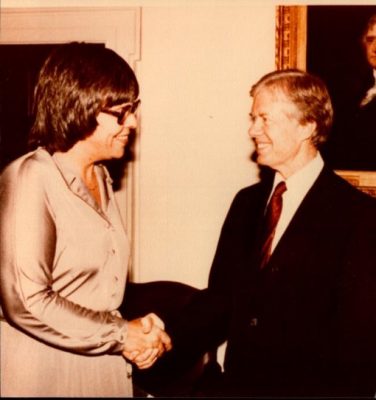 Despite women being the majority of NASW’s membership, men had dominated leadership positions. Humphreys advocated for equality and making gender a permanent part of the organization’s affirmative action plan. She appointed the first female editor of Social Work journal, created the first women’s conference in social work, and was appointed by President Jimmy Carter as a member of his National Advisory Committee on Women’s Issues, the only social worker.
Despite women being the majority of NASW’s membership, men had dominated leadership positions. Humphreys advocated for equality and making gender a permanent part of the organization’s affirmative action plan. She appointed the first female editor of Social Work journal, created the first women’s conference in social work, and was appointed by President Jimmy Carter as a member of his National Advisory Committee on Women’s Issues, the only social worker.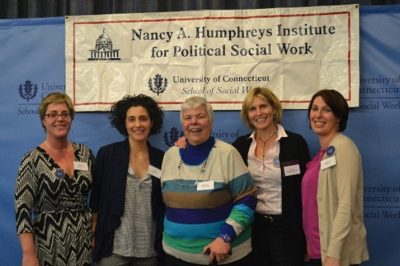
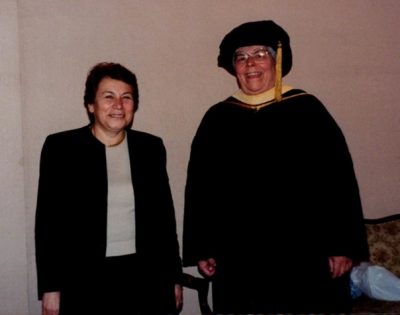 In 2003, she was given a Lifetime Achievement Award from NASW. This recognition was added to many awards, and certificates of recognition for her service to the profession and those populations social workers serve including New Jersey’s Social Worker of the Year (1981), Distinguished Alumnus from USC Graduate School of Social Work, Distinguished Social Worker by the Connecticut Chapter of NASW (1992) and was a awarded an honorary Doctorate from Yerevan State University of Armenia. She was later inducted into the California Social Work Hall of Distinction in 2015.
In 2003, she was given a Lifetime Achievement Award from NASW. This recognition was added to many awards, and certificates of recognition for her service to the profession and those populations social workers serve including New Jersey’s Social Worker of the Year (1981), Distinguished Alumnus from USC Graduate School of Social Work, Distinguished Social Worker by the Connecticut Chapter of NASW (1992) and was a awarded an honorary Doctorate from Yerevan State University of Armenia. She was later inducted into the California Social Work Hall of Distinction in 2015.